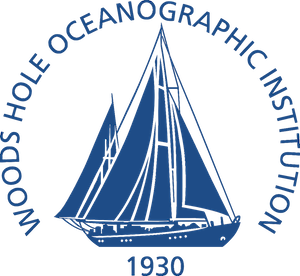
The Woods Hole Oceanographic Institution is a private, nonprofit research and higher education facility dedicated to the study of marine science and engineering.

William Maurice "Doc" Ewing was an American geophysicist and oceanographer.

Jule Gregory Charney was an American meteorologist who played an important role in developing numerical weather prediction and increasing understanding of the general circulation of the atmosphere by devising a series of increasingly sophisticated mathematical models of the atmosphere. His work was the driving force behind many national and international weather initiatives and programs.
Mark A. Cane is an American climate scientist. He obtained his PhD at MIT in 1975. He is currently the G. Unger Vetlesen Professor of Earth and Climate Sciences at Columbia University and the Lamont Doherty Earth Observatory. He actively pursues several research and teaching initiatives, and supports the Columbia climate kids corner. As of November 11, 2015, his publications have been cited over 22,600 times, and he has an h-index of 75.
Carl Wunsch was the Cecil and Ida Green Professor of Physical Oceanography at the Massachusetts Institute of Technology, until he retired in 2013. He is known for his early work in internal waves and more recently for research into the effects of ocean circulation on climate.

Matthew England is a physical oceanographer and climate scientist. He is currently Scientia Professor of Ocean & Climate Dynamics at the University of New South Wales, Sydney, Australia.
Sverdrup Gold Medal Award – is the American Meteorological Society's award granted to researchers who make outstanding contributions to the scientific knowledge of interactions between the oceans and the atmosphere.

Warren Morton Washington is an American atmospheric scientist, a former chair of the National Science Board, and currently senior scientist at the National Center for Atmospheric Research (NCAR) in Boulder, Colorado.
Klaus Wyrtki was an American physical oceanographer.

Isaac Meyer Held is an American meteorologist. He is a senior research scientist at the Geophysical Fluid Dynamics Laboratory. Held was elected to the United States National Academy of Sciences in 2003.

Geophysical fluid dynamics, in its broadest meaning, refers to the fluid dynamics of naturally occurring flows, such as lava flows, oceans, and planetary atmospheres, on Earth and other planets.
Harry Leonard Bryden, FRS is an American physical oceanographer, professor at University of Southampton, and staff at the National Oceanography Centre, Southampton. He is best known for his work in ocean circulation and in the role of the ocean in the Earth's climate.

Susan K. Avery is an American atmospheric physicist and President Emerita of the Woods Hole Oceanographic Institution (WHOI) in Massachusetts, where she led the marine science and engineering research organization from 2008–2015. She was the ninth president and director and the first woman to hold the leadership role at WHOI. She is Professor Emerita at the University of Colorado, Boulder (UCB), where she served on the faculty from 1982–2008. While at UCB she also served in various administrative positions, including director of the Cooperative Institute for Research in Environmental Sciences (CIRES), a 550-member collaborative institute between UCB and the National Oceanic and Atmospheric Administration (NOAA) (1994-2004); and interim positions (2004-2007) as vice chancellor for research and dean of the graduate school, and provost and executive vice chancellor for academic affairs. Currently she is a senior fellow at the Consortium for Ocean Leadership in Washington, D.C.
John Charles Marshall, FRS is a British oceanographer and academic. He is the Cecil and Ida Green Professor of Oceanography in the Department of Earth, Atmospheric and Planetary Sciences at the Massachusetts Institute of Technology (MIT). He is also an adjunct senior research scientist in the Department of Applied Physics and Applied Mathematics at Columbia University.

Alan Judson Faller was an American meteorologist / oceanographer specializing in small oceanic and atmospheric circulation. He was the son of the Olympic runner Fred Faller.
Kenneth Orris Emery (1914–1998) was a Canadian-born American marine geologist.
Peter George Baines is an Australian geophysicist. He is an honorary senior fellow at University of Melbourne and a Fellow of the Royal Society of Victoria.
Ann Gargett is a Canadian oceanographer known for her research on measuring turbulence and its impact on biological processes in marine ecosystems.
Karl R. Helfrich is an American physical oceanographer.









